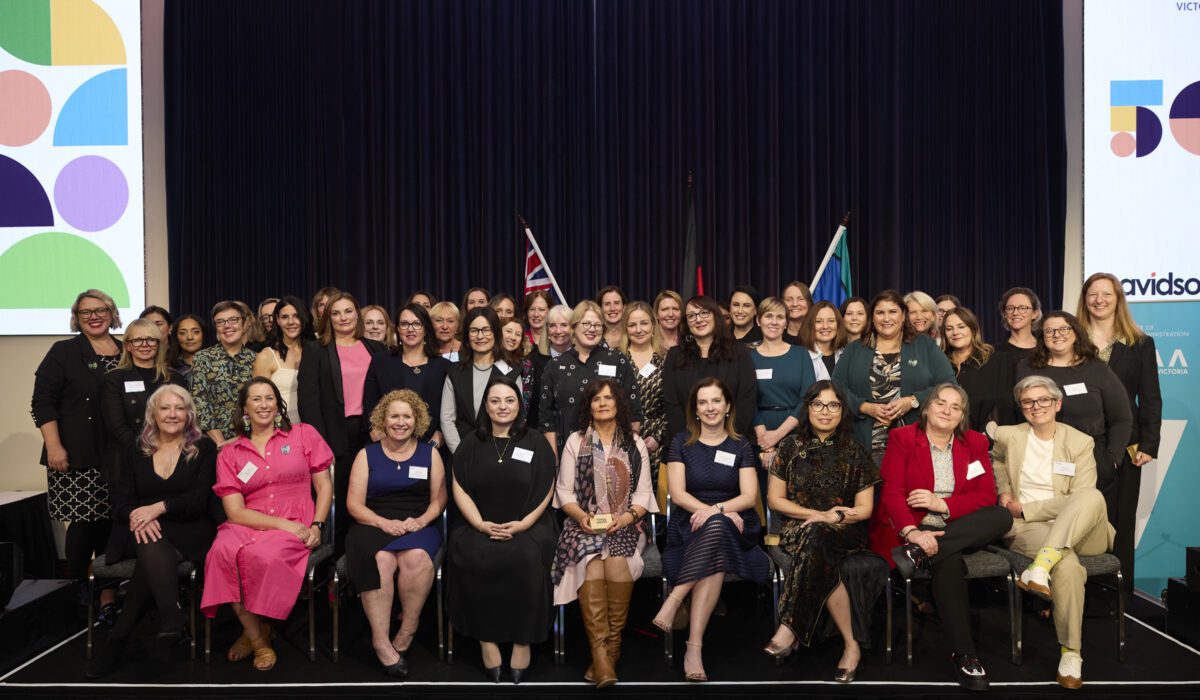

On Thursday 19 May 2022, IPAA Victoria held the Frank and Fair – Staying Impartial in the Public Sector webinar to explore these themes and provide practical observations.
This event was a rare opportunity for Victorian public sector employees to hear from esteemed speakers Deborah Glass OBE, Victorian Ombudsman, Adam Fennessy PSM, Commissioner, Victorian Public Sector Commission and facilitator Marlo Baragwanath, CEO, Independent Broad-based Anti-corruption Commission (IBAC).
“A major theme was the importance and power of public perception – at a time when public perceptions of political leaders have been low, does this perception extend to public servants working in the community?”
Over 600 attendees joined online to engage in a robust exploration of the importance of the public sector staying impartial when providing policy advice and implementing government policy.
The speakers answered questions from the audience, and a major theme was the importance and power of public perception – at a time when public perceptions of political leaders have been low, does this perception extend to public servants working in the community?
“It’s about trust and confidence, being open and transparent about how we work, learning from where things do not go right from independent scrutiny, and continually improving what we do.”
According to last year’s People Matter Survey, completed by over 92,000 public sector employees, a clear majority (68%) of employees perceived their workplace to actively display the value of impartiality. When compared to the other public sector values, however, impartiality and perceptions of impartiality scored lowest. This was measured through questions on fair merit-based recruitment, political impartiality in making decisions, advising fairly without bias, and making decisions informed by facts and evidence.
‘It’s about trust and confidence, being open and transparent about how we work, learning from where things do not go right from independent scrutiny, and continually improving what we do across … the Victorian public sector,’ explains Adam Fennessy PSM.
The conversation moved toward the government’s pandemic response and community perceptions. There were times when public trust was high – think back to the earliest phase of the pandemic – then public trust dipped during the extended lockdowns of 2020 and 2021. Adam articulated the impacts of operating in low-trust versus high trust environments. When public trust is low, there is the possibility for increased friction, cynicism, alienation and disenfranchisement. When public trust is high, there are higher levels of cooperation and civic participation, and interestingly lower transaction costs.
“Think about the impact of the decision on the person affected and make sure you communicate it in a way that does not leave any doubt as to your impartiality.”
On the topic of the politicisation of the public service, Deborah Glass OBE addressed the thread of perceptions and decision making and offered the following advice:
“To think about the impact of the decision on the person affected and make sure you communicate it in a way that does not leave any doubt as to your impartiality. So, explain your reasons, be transparent, communicate well. It can avoid an enormous amount of misunderstanding.”
Facilitator Marlo Baragwanath asked the experts what it means to be impartial and how someone in the public service demonstrates that well. Deborah Glass summed it up clearly: make decisions based on the evidence and be able to justify the rationale. Adam Fennessy PSM added that transparency is paramount.
For anyone who missed the webinar, we have put together a short highlight reel of the event.
IPAA Victoria would like to formally thank our speakers who were willing to give up their time to explore these important issues. We will continue to focus on these types of issues given their particular relevance to the public purpose sector.
We look forward to welcoming you to future events and programs.
Federal, state and local government elections all have different legislative requirements for public sector employees wishing to stand for election. It’s important that employees understand and comply with these requirements. The Victorian Public Sector Commission (VPSC) has published two guides to help support Victorian public sector employees and managers understand and meet their obligations during election periods. You can find these guides on the Commission’s website:
· Guide for employees during election periods
· Manager's guide for working with employees involved in election activities.
The 2022 Guidelines on the Caretaker Conventions for the Victorian state election will also help employees understand how to perform their role during the caretaker period, when it starts on 1 November 2022.
Other relevant resources include:
· Code of Conduct for Victorian Public Sector Employees.
· Informing and advising Ministers: guidance to Secretaries about their responsibilities.
During the webinar, Deborah Glass referred to an investigation that has commenced into the politicisation of the public service. You can find the Issues Paper on the Ombudsman website, as well as information on conflict of interest training being delivered on 30 August 2022.